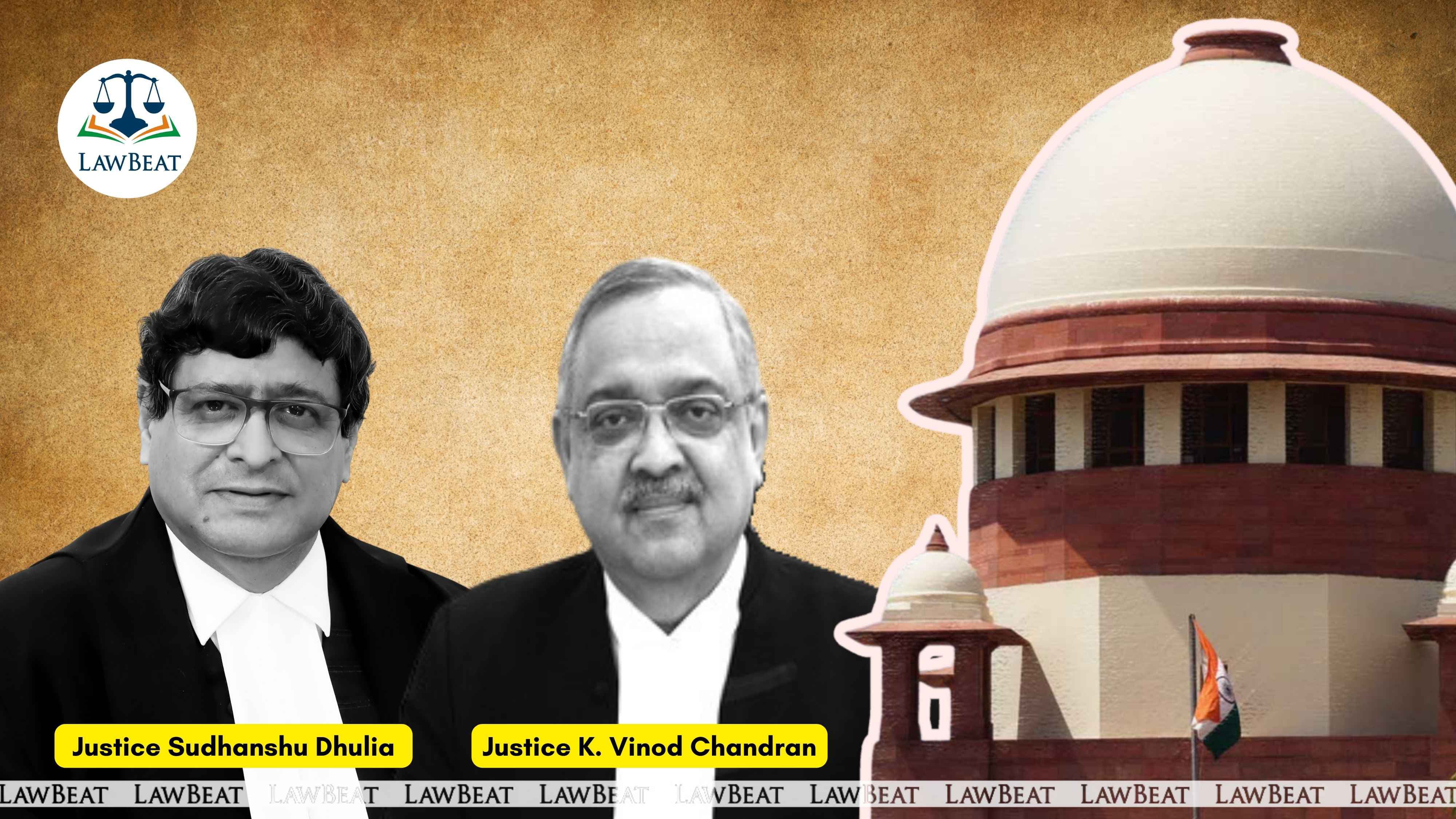High Court Cannot Order CBI Probe In A Bail Plea: SC

We are also bound by the precedents which unequivocally hold that there can be no such direction issued in a bail application, the bench said
The Supreme Court recently held that no direction can be issued by the high court for a CBI investigation into a criminal case, while dealing with a bail matter.
A bench of Justices Sudhanshu Dhulia and K Vinod Chandran set aside the Allahabad High Court's order of May 24, 2023, which allowed bail to Dr Ritu Garg but ordered a CBI probe into allegations made by another person in a statement before the police.
The woman respondent, a renowned lady doctor was arrested in a 2022 FIR under Sections 419, 420, 467, 468, 471, 120-B IPC and Section 66D IT Act, Police Station Hazratganj, District Lucknow, in a matter related to admission of ineligible candidates in Ayurveda, Unani and Homoeopathy colleges during the NEET 2021 counselling in lieu of huge sums of money and alleged payment of huge bribe to a minister as well.
The court noted in the instant case, the bail application stood allowed but based on a Section 161 CrPC statement, confronted to the investigating officer; present in court, who also stated that the allegations made therein were not verified from the senior officers of the Government; the directions for the CBI probe were issued.
"We are afraid that no exceptional or extraordinary circumstance has been brought out from the Section 161 CrPC statement or a statement made by the Investigating Officer, who was present in the court, without verifying the records. We are also bound by the precedents which unequivocally hold that there can be no such direction issued in a bail application," the bench said.
The State of Uttar Pradesh was aggrieved with the directions issued by the single judge bench of the high court, directing the Director, CBI to register a case based on the statement of one Dr Umakant under Section 161 of the Code of Criminal Procedure and conduct investigation thereon; in a bail application.
Additional Solicitor General K M Nataraj, appearing for the UP government, took umbrage in such directions being issued in a bail application; which had been deprecated by the top court also.
He said the Uttar Pradesh Government had requested the Government of India for a CBI inquiry as early as on October 11, 2022 and on April 13, 2023 but, there was a communication that it would not be feasible. As of now, the investigation has considerably progressed and transferring the same at this stage would seriously affect the morale of the State Police, he submitted.
In support of his arguments, he cited the Supreme Court judgments in the case of State of West Bengal and others Vs Committee for Protection of Democratic Rights, West Bengal and others (2010), State Represented by Inspector of Police Vs M Murugesan and another (2020); Seemant Kumar Singh Vs Mahesh PS and others (2023) and Union of India Thr IO Narcotics Control Bureau Vs Man Singh Verma (2025).
The court also noted in the State of West Bengal case, it was held that it is permissible for the high court under Article 226 and the Supreme Court under Article 32 of the Constitution of India in exercise of the power of judicial review, to protect and enforce fundamental rights in general and Article 21 in particular, to issue directions to the CBI to investigate a case even without the consent of the State Government.
However, it was cautioned that this extraordinary power has to be exercised sparingly, cautiously and in exceptional situations where it becomes necessary to provide credibility and instil confidence in investigations or where the incident may have national and international ramifications or where such an order may be necessary for doing complete justice or enforcing fundamental rights, the bench said.
The court cited M Murugesan, where the Supreme Court clearly held that a court’s jurisdiction in a bail application concludes once bail is either granted or denied.
In that case, after decision on the bail plea, the high court had retained the case file and directed the State to constitute a committee to recommend measures for improving investigation quality. The apex court found this improper, stating that Section 439 of the Criminal Procedure Code, 1973, grants no such authority
The said decision was followed in Seemant Kumar Singh and Man Singh Verma. In the latter case, the court observed that judicial overreach, where courts exceed their jurisdiction, has repeatedly been disapproved.
The court thus set aside the impugned to the extent of the directions issued to the CBI.
"We make it clear that even the State did not have an objection to the bail granted in the present appeal and in that circumstance, we have refrained from looking at the facts leading to the investigation; lest that, in any manner, interfere with the investigation," the bench said.
Case Title: State of Uttar Pradesh Vs Dr Ritu Garg & Ors
